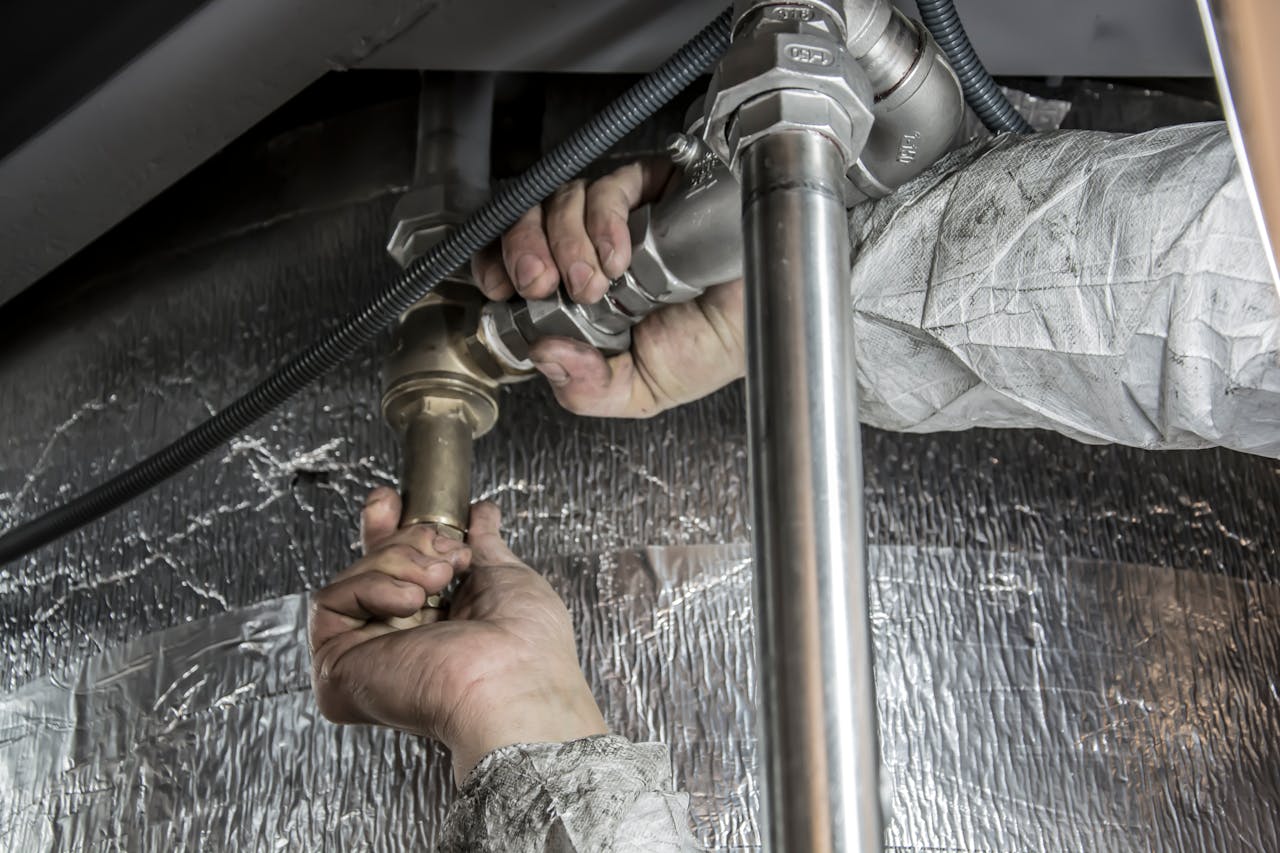
Types of Emergency Plumbing: What Homeowners Need to Know
Plumbing emergencies can strike at any time, often without warning. When they do, having access to an experienced emergency plumber can make all the difference. Understanding the various types of emergency plumbing situations can help you respond effectively and minimize damage to your home. From burst pipes to severe clogs, here’s what you need to know about common plumbing emergencies and how to handle them.
Burst Pipes
Causes and Risks
Burst pipes are among the most serious emergencies in plumbing that a homeowner can encounter. The freezing temperature or old corroded pipes and excessive water pressure usually cause them. When there is a burst pipe, it can pour a lot of water into your house and this might ruin walls as well as floors among other things owned by the person.
Immediate Actions
The initial thing you should do if you suspect a pipe has burst is turning off the main water supply so as to keep yourself from being flooded more than it is now, contact emergency plumbers as soon as possible and before they arrive try and use buckets, towels or a wet/dry vacuum cleaner in order to reduce the extent of the damage caused to your property.
Severe Clogs
Common Causes
Clogs are a frequent plumbing issue, but when they become severe, they can lead to major problems. Severe clogs can be caused by the buildup of grease, hair, soap scum, and foreign objects in the pipes. These clogs can result in slow draining sinks, toilets that won’t flush, and even sewage backups.
Preventive Measures
Regular maintenance, such as using drain guards and avoiding the disposal of grease and large food particles down the drain, can help prevent severe clogs. However, if you experience a serious blockage, it’s crucial to call an emergency plumber to safely and effectively clear the pipes.
Water Heater Failures
Signs of Trouble
Water heater problems can also be plumbing crisis signs, especially if it is winter. A failed water heater is easily identifiable, which have water temperature fluctuations, strange sounds, leaking or water that is rusty. A broken-down water heater can deny one hot water while in extreme cases such as tank leaks or bursting would lead to flooding.
What to Do
When you observe any indications that your water heater is failing, switch off the electricity and the inlet valve in case of a leak. Seek help from a 24-hour emergency plumber who will look at the problem and fix it. Sometimes it is necessary to buy a new water heater; at other times the old one can be repaired.
Overflowing Toilets
Immediate Concerns
A flooded toilet can be a nasty and difficult to handle emergency. This is mostly caused by a grave obstruction or some failure in the flushing equipment. The first thing to do in such cases is limiting the flow of water so that it does not flood your home causing damage to the walls, floors or serve as a source of infection.
Steps to Take
The initial step involves the turning off of a water line that leads to a toilet bowl created at a position near the floor behind the bowl as it flows. Some towels or a mop can be used to remove extra water on the floor. Whenever you witness such a situation contact a plumber who works on emergencies so that the hidden problem, which can be clogging or a mechanical hitch with the commode, is addressed.
Leaking Pipes
Identifying the Problem
Water pipe leaks can wreak havoc for a long time especially if they remain undetected initially. Damp walls/ceilings “free” water sound stop faucets are common indications of leaking pipes. Moreover water pipe leaks may be apparent on your water bill: you cannot convincingly explain the accurate amount you are supposed to pay for.
Temporary Fixes
When you find a leaking pipe, turn off the main water supply so as to avoid causing any more damage. You can use either pipe repair tape or a pipe clamp as a quick solution until a plumber comes to check the leak and repair it instantly.
Sewer Line Backups
Health and Safety Hazards
Sewer line backups are considered to be one of the most serious plumbing emergencies because they pose health threats. They may be caused by blockages in the main sewer line, the intrusion of tree roots or damaged sewer pipes. The common indicators that show a sewer line backup include multiple drains clogging up at the same time, bubbling noises from the drain and the presence of bad smells in the place.
Immediate Response
If you suspect a sewer line backup, avoid using any plumbing fixtures to prevent further contamination. Contact an emergency plumber immediately to assess the situation and perform the necessary repairs. In some cases, you may need to vacate your home temporarily for health and safety reasons.
Gas Leaks
Danger and Detection
Nobody wants their home to be broken into—until they realize that what they really fear more than burglars scale the walls, is the possibility of a bigger threat coming through an unguarded entrance like gas Para 2 does not have “a gas leak” mentioned, by breaking into the room illegally and stealing valuable items in it. This could be a disaster that could have happened to anyone. Gas leaks are usually caused by gas lines, appliances or fittings that have a fault in them. The most common indicator that someone may have been exposed to leaking gases is the smell of rotten egg shells used Deciding that one could not bear to sell her house depreciated her income much because she could not buy another house.
Safety Measures
If you believe that there is a gas leakage then you must immediately leave your house hence do not ever think of operating any electrical appliance or lighting matches until then because they could all ignite fire even though one may not intend this; hurry to where some fresh air cannot even contain them – outside, whereupon reaching there ring up both emergency helpline at once so that a call will be made which may save someone else’s life while as well as your own in order for everything else not become worse than what has already happened since its time was running out fast after all; call them all again so that what has occurred might soon be gone and forgot forevermore about our future together at least until tomorrow morning\FrameworkBundleInform your gas supplier and emergency plumber when you reach a secure location. Wait for authorities to announce otherwise before venturing back home.
Broken Water Lines
Signs and Symptoms
Broken water lines can occur due to natural wear and tear, ground movement, or damage from construction activities. Signs of a broken water line include low water pressure, wet spots in your yard, and unusually high water bills.
Taking Action
If you suspect a broken water line, turn off the main water supply and contact an emergency plumber. They will use specialized equipment to locate the break and perform the necessary repairs. Addressing a broken water line promptly can prevent extensive water damage and costly repairs.
Frozen Pipes
Risks in Cold Weather
In colder climates, frozen pipes are a common plumbing emergency. When water in the pipes freezes, it expands and can cause the pipes to burst. This can lead to significant water damage once the ice thaws and water begins to flow again.
Prevention and Thawing
To prevent frozen pipes, insulate exposed pipes and keep your home adequately heated during cold weather. If you suspect a pipe is frozen, you can try to thaw it using a hairdryer or space heater. However, if you cannot locate the frozen section or if the pipe has burst, contact an emergency plumber for assistance.
Conclusion
Plumbing emergencies can be stressful and potentially damaging to your home. Knowing the common types of emergency plumbing situations and how to respond can help you minimize damage and ensure a swift resolution. In any emergency plumbing scenario, the most crucial step is to contact a professional emergency plumber. Their expertise and prompt action can prevent further damage and restore your plumbing system to proper working order. Regular maintenance and being aware of potential issues can also help you avoid many of these emergencies, keeping your home safe and comfortable.
- Elevate Your Outdoor Space with Stylish Outdoor Pool Tables - August 27, 2024
- How Bryden Johnson Can Help Food Entrepreneurs Thrive - August 27, 2024
- The Future of Used Car Market: Trends to Watch Out For - July 19, 2024


